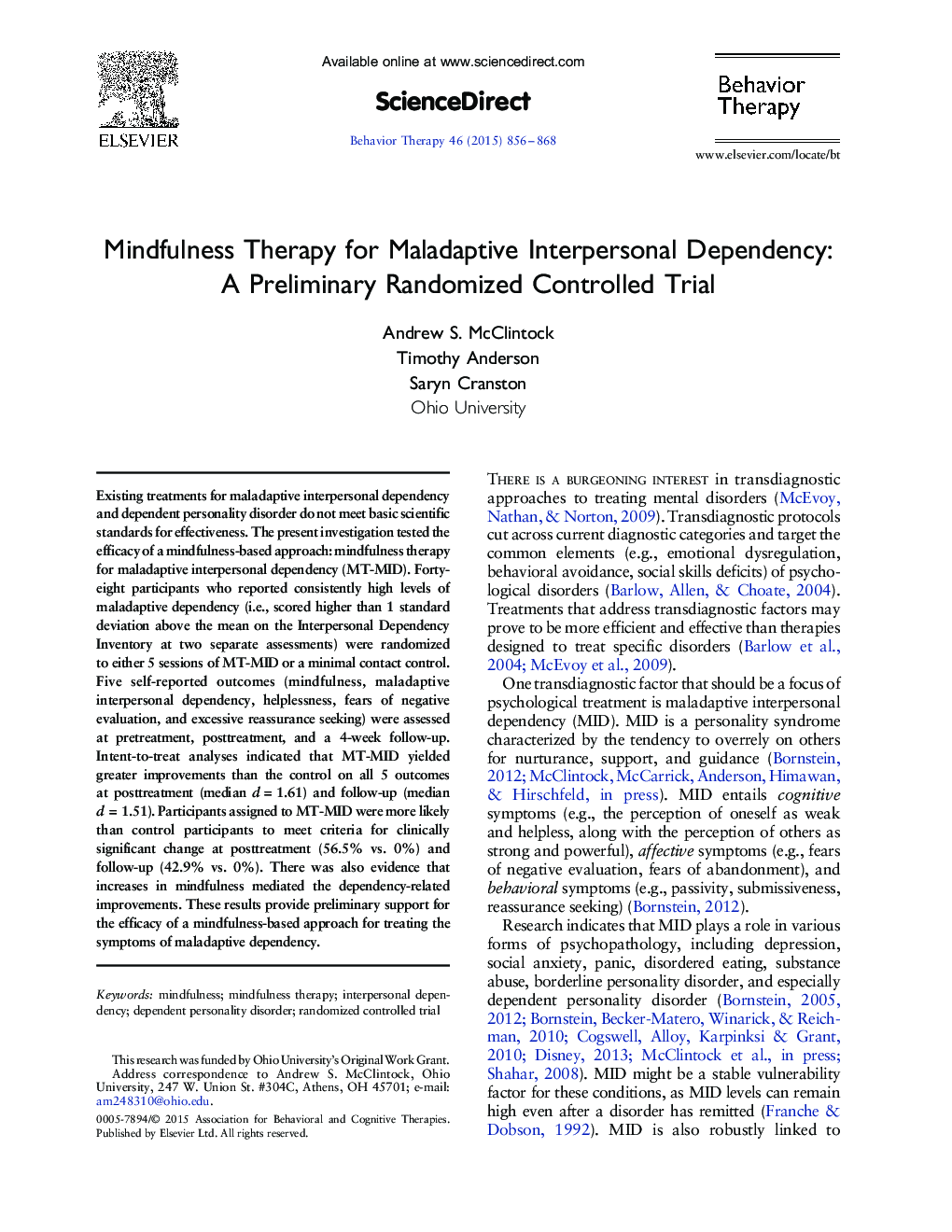| Article ID | Journal | Published Year | Pages | File Type |
|---|---|---|---|---|
| 901293 | Behavior Therapy | 2015 | 13 Pages |
•A brief mindfulness therapy (MT-MID) was developed to target symptoms of maladaptive dependency•The efficacy of MT-MID was tested relative to a minimal contact control•MT-MID outperformed control by producing large effects on dependency-related outcomes•Changes in mindfulness statistically mediated dependency-related improvements•Therapeutic gains were well sustained at 4-week follow-up
Existing treatments for maladaptive interpersonal dependency and dependent personality disorder do not meet basic scientific standards for effectiveness. The present investigation tested the efficacy of a mindfulness-based approach: mindfulness therapy for maladaptive interpersonal dependency (MT-MID). Forty-eight participants who reported consistently high levels of maladaptive dependency (i.e., scored higher than 1 standard deviation above the mean on the Interpersonal Dependency Inventory at two separate assessments) were randomized to either 5 sessions of MT-MID or a minimal contact control. Five self-reported outcomes (mindfulness, maladaptive interpersonal dependency, helplessness, fears of negative evaluation, and excessive reassurance seeking) were assessed at pretreatment, posttreatment, and a 4-week follow-up. Intent-to-treat analyses indicated that MT-MID yielded greater improvements than the control on all 5 outcomes at posttreatment (median d = 1.61) and follow-up (median d = 1.51). Participants assigned to MT-MID were more likely than control participants to meet criteria for clinically significant change at posttreatment (56.5% vs. 0%) and follow-up (42.9% vs. 0%). There was also evidence that increases in mindfulness mediated the dependency-related improvements. These results provide preliminary support for the efficacy of a mindfulness-based approach for treating the symptoms of maladaptive dependency.
